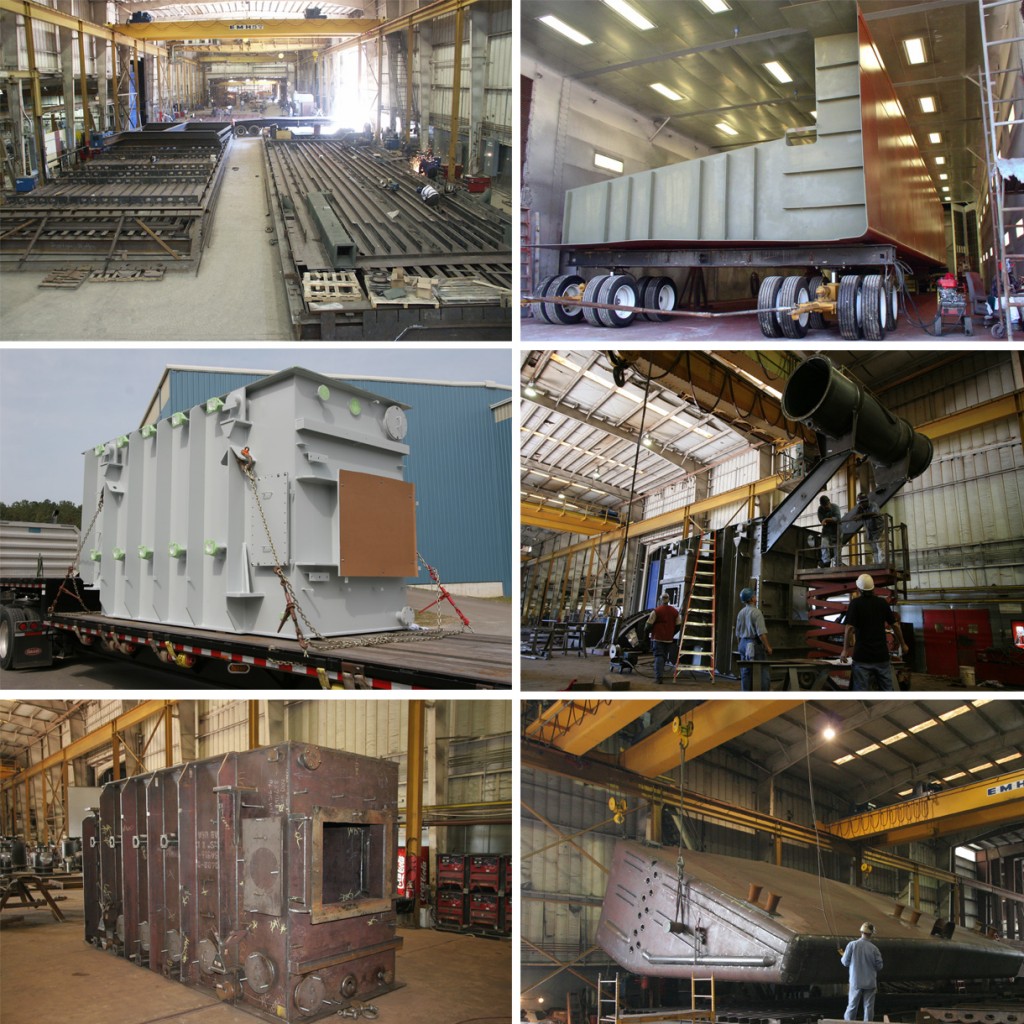Alpha Reo: Leading the Way in Reinforced Steel Solutions
Alpha Reo: Leading the Way in Reinforced Steel Solutions
Blog Article
The Ultimate Manual on Custom-made Steel Manufacture Solutions for Structural Projects
In the realm of architectural jobs, the significance of custom steel fabrication services can not be overemphasized. From the fundamental understanding of steel construction essentials to the intricate process of picking the most suitable materials, every step in this trip plays a crucial role in the supreme success of a job.
Recognizing Custom-made Steel Manufacture Fundamentals
Exploring the principles of custom steel manufacture supplies understanding right into the elaborate procedure of changing raw steel right into customized architectural elements. Customized steel construction is a customized production strategy that entails cutting, shaping, and assembling steel materials to produce distinct structures according to certain job requirements. Understanding the essentials of customized steel manufacture is essential for making sure the effective execution of architectural projects.
The process usually starts with the evaluation of task specs and design needs. This initial stage entails thorough planning and cooperation between designers, developers, and producers to figure out the most appropriate strategy for making the steel components. Precision is vital throughout the construction procedure, as even minor discrepancies can affect the structural integrity of the end product.
Different methods, such as cutting, welding, and shaping, are utilized to transform raw steel right into the desired structural elements. Experienced fabricators utilize advanced machinery and devices to make sure accuracy and consistency throughout the manufacture process. Quality control procedures are applied to validate the integrity of the made components before they are assembled on-site, making sure conformity with market criteria and job requirements.
Picking the Right Steel Materials

First and leading, the sort of structural job and its specific requirements play a vital role in identifying the most ideal steel products. Factors such as the load-bearing capability, ecological conditions, and preferred lifespan of the structure will certainly dictate the quality and kind of steel that need to be made use of.
Furthermore, the physical residential properties of the steel, consisting of stamina, ductility, and weldability, should straighten with the project's needs to ensure optimal efficiency and toughness (steel fixing). Furthermore, considerations such as corrosion resistance, cost-effectiveness, and availability of the steel materials must also be thought about throughout the choice procedure
Design Factors To Consider for Structural Jobs
Structural tasks demand precise focus to make considerations to make certain both capability and safety and security are focused on throughout the construction process. When it comes to creating architectural projects, several key aspects must be taken right into account to ensure the success of the undertaking. By carefully considering these facets during the layout phase, engineers and architects can make sure the structural task's success from perception to completion.
Streamlining Fabrication Procedures for Effectiveness

In addition, applying lean production principles can significantly boost effectiveness in steel manufacture. By lessening waste, enhancing operations, and boosting communication between various groups included in the fabrication procedure, projects can be completed a lot more promptly and with better criteria.
Furthermore, developing a well-organized manufacturing schedule and workflow can help in focusing on jobs, designating resources efficiently, and conference project target dates promptly. By having a clear strategy in position and routinely monitoring development, any type of potential traffic jams or hold-ups can be identified and attended to immediately, making sure effective and smooth construction processes for structural tasks.
Quality Control and Task Administration in Steel Fabrication
To make certain the successful execution of steel construction projects, thorough quality assurance steps and efficient job management techniques are crucial parts in keeping precision and conference customer expectations. Quality control in steel fabrication entails strenuous examinations at different stages of the construction process to validate compliance with project specifications and market requirements. This includes product testing, dimensional checks, and weld inspections to make certain architectural stability and security.
Job administration plays a vital role in coordinating the various aspects of steel manufacture jobs, such as organizing, resource allowance, and interaction among staff More about the author member. A distinct job strategy with clear objectives, landmarks, and timelines aids to monitor development and address any potential problems proactively. Reliable interaction between all stakeholders, consisting of clients, professionals, engineers, and fabricators, is important for making sure that the task progresses smoothly and meets the wanted top quality criteria.
Final Thought
Finally, personalized steel construction plays an important role in architectural projects by providing customized services making use of the appropriate products and style factors to consider. Performance in construction procedures, quality assurance, and effective job management are vital for successful results. By understanding the essentials of custom steel construction and implementing structured processes, project groups can provide resilient and high-quality frameworks that meet the specific needs of their customers.
Custom-made steel fabrication is a specialized production strategy that involves cutting, shaping, and putting together steel products to create unique structures according to specific project needs.To ensure the successful implementation of steel manufacture tasks, careful high quality control actions and reliable project monitoring methods are necessary parts in preserving accuracy and meeting client expectations. Quality control in steel fabrication involves extensive examinations at different stages of the construction procedure to validate conformity with project specifications and market criteria view website (Alpha reo).Job monitoring site plays a critical duty in collaborating the different aspects of steel manufacture tasks, such as organizing, source allotment, and communication among group participants.In verdict, custom-made steel construction plays a critical role in architectural projects by giving customized remedies using the best products and design considerations
Report this page